Consumer packaged goods
All-atom molecular dynamics, coarse-grained, and machine learning approaches for studying materials integral to the formulation of CPG
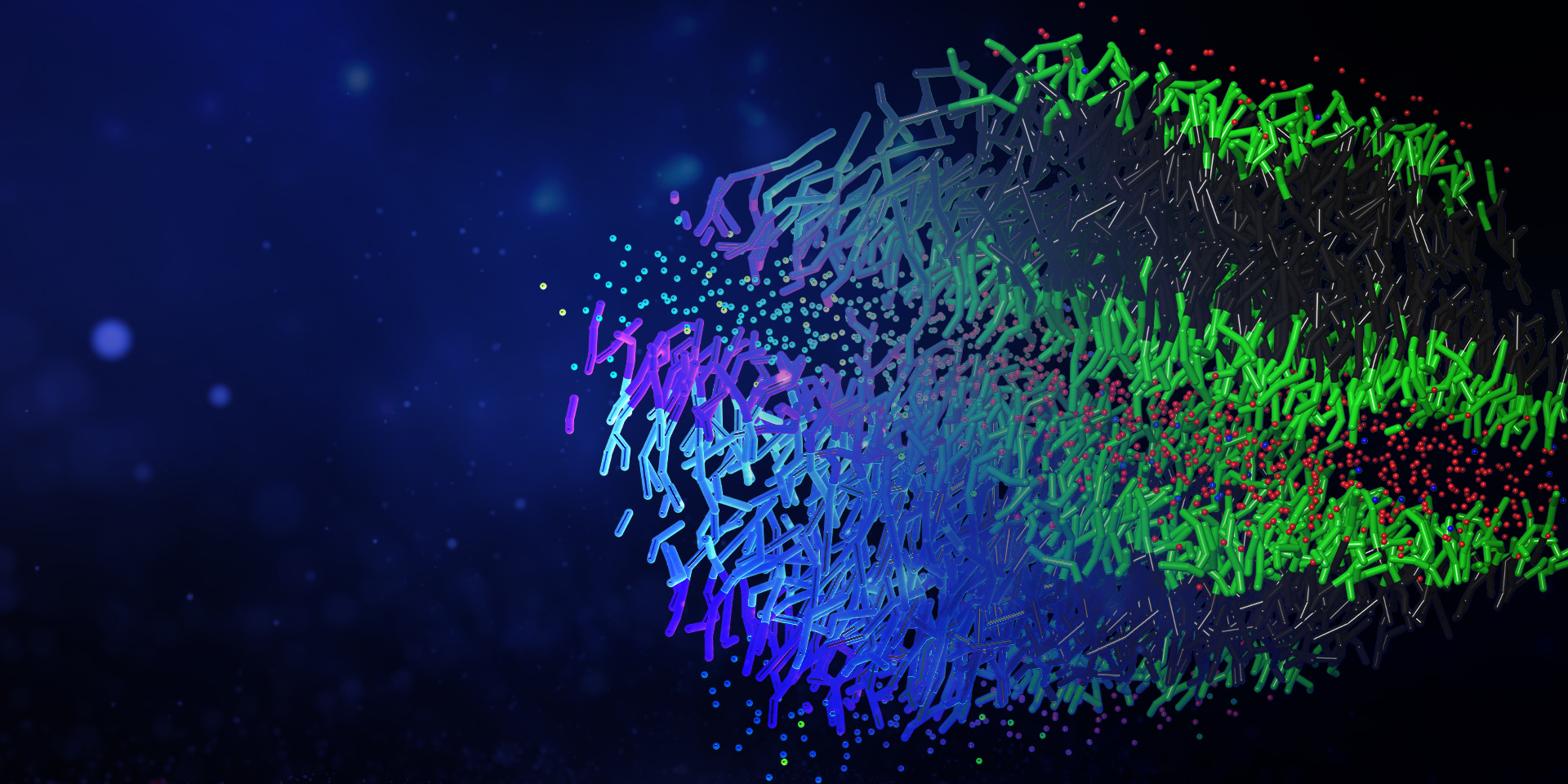
All-atom molecular dynamics, coarse-grained, and machine learning approaches for studying materials integral to the formulation of CPG
Computational molecular modeling tools have proven effective in materials science research and development. Chemists, physicists and engineers working in materials science will increasingly encounter molecular modeling throughout their careers, making it critical to have a foundational understanding of the cutting edge tools and methods. These courses are ideal for those who wish to develop professionally and expand their CV by earning certification and a badge.
These computational chemistry courses offer an effective and efficient approach to learn practical computational chemistry for materials science:
This course comes with access to a web-based version of Schrödinger software with the necessary licenses and compute resources for the course:

Learn how to use an industry-leading interface for materials science modeling. No coding or scripting required to run modeling workflows
Learn to leverage all-atom MD simulations for simulating complex formulations and their properties
Accessing larger length scale and longer time scales by employing coarse-grained methods to study formulations
Learn to apply machine learning for rapid and accurate property prediction of organic molecules and polymers
Introduction to materials modeling
Introduction to materials modeling
Introduction to materials science (MS) Maestro
Modeling for consumer packaged goods
All-atom molecular dynamics
Introduction to molecular dynamics (MD)
Coarse-grained simulation
Introduction to coarse-graining (CG)
Machine learning
Introduction to machine learning (ML)
Molecular quantum mechanics
Introduction to quantum mechanics (mQM)
Guided case studies
Independent case study
Self-aggregation of DDM and DPC molecules
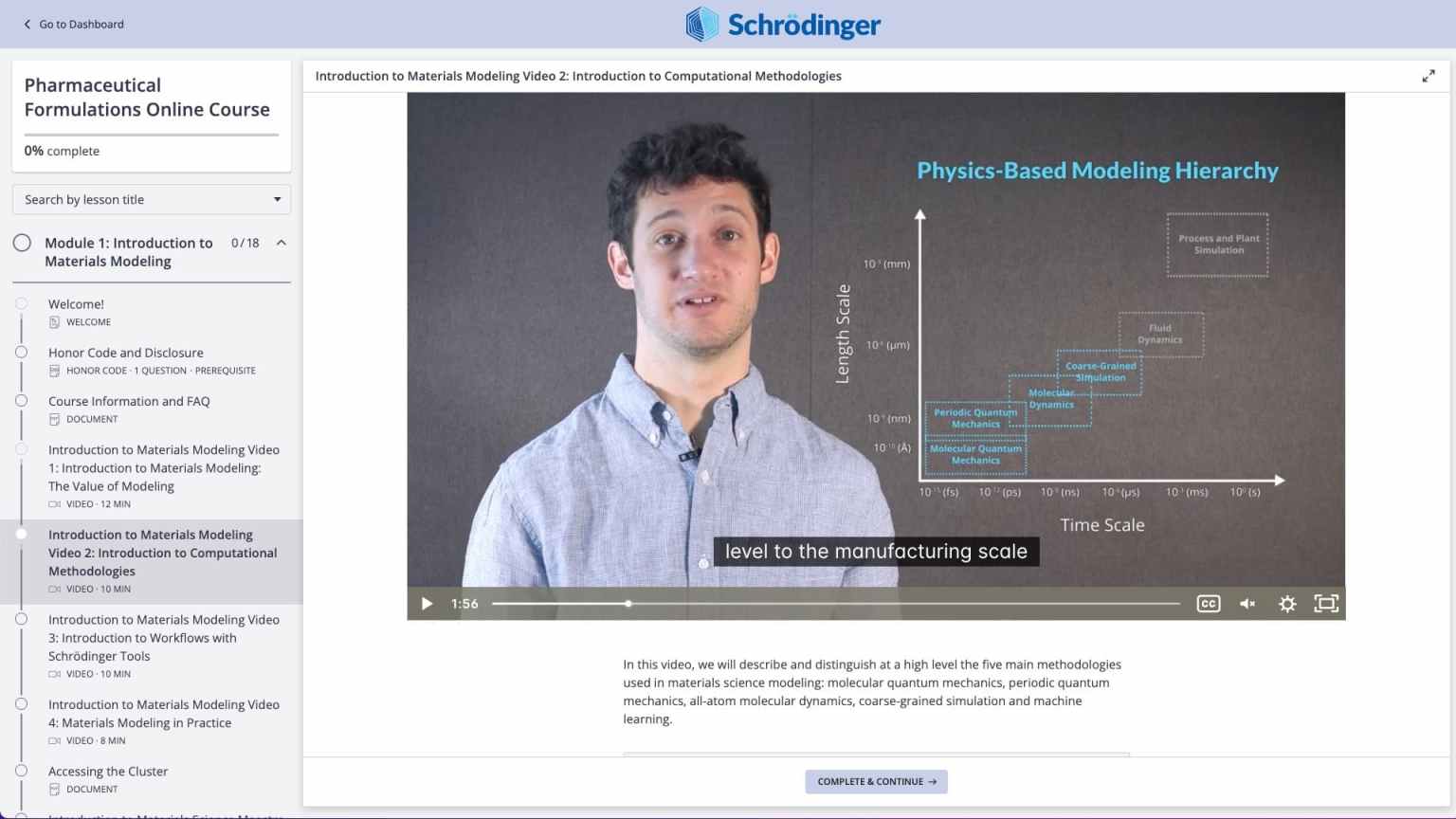
Self-paced video lessons on materials modeling
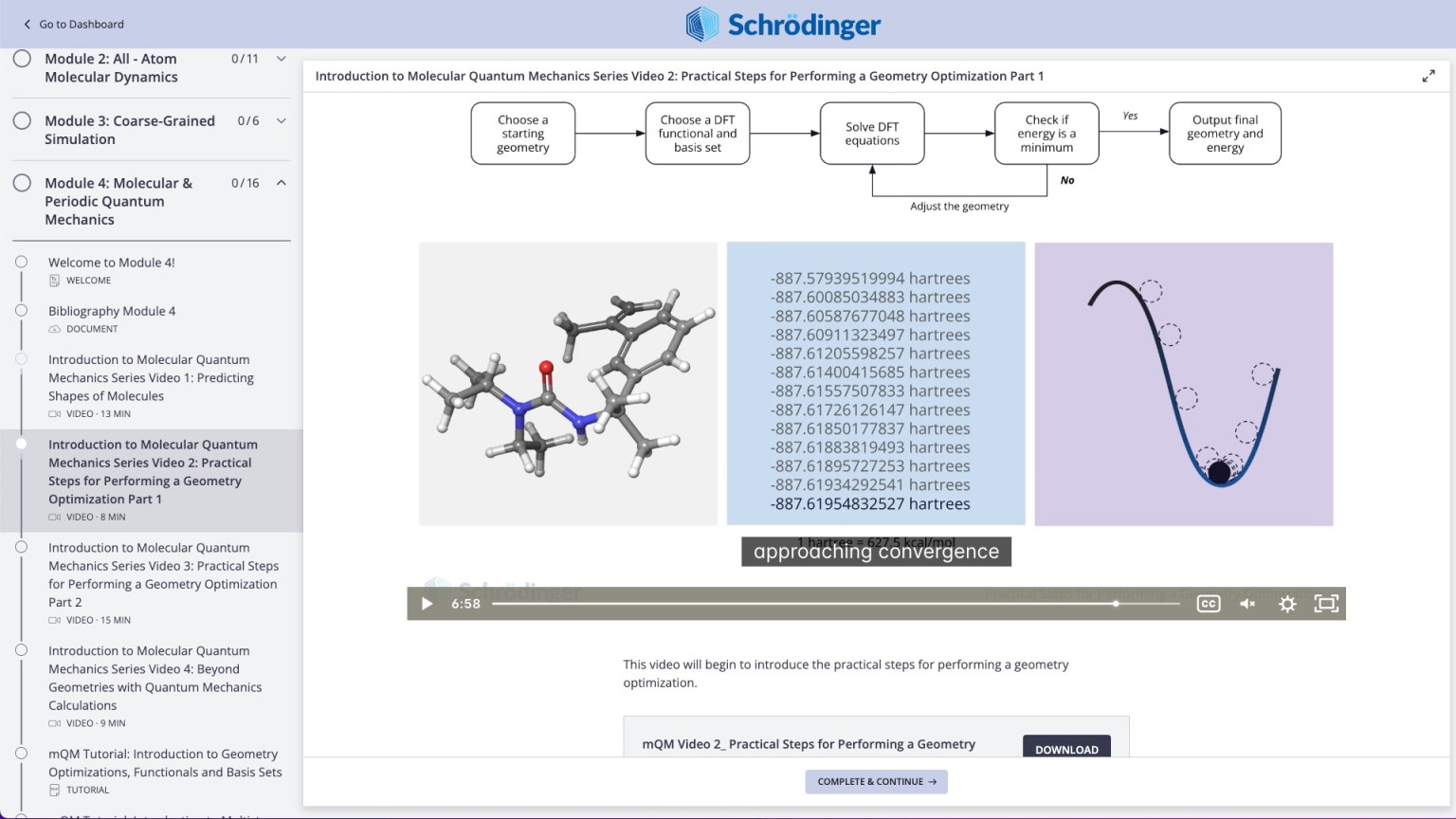
Videos on practical theory break down complex scientific concepts (e.g. Molecular Quantum Mechanics)
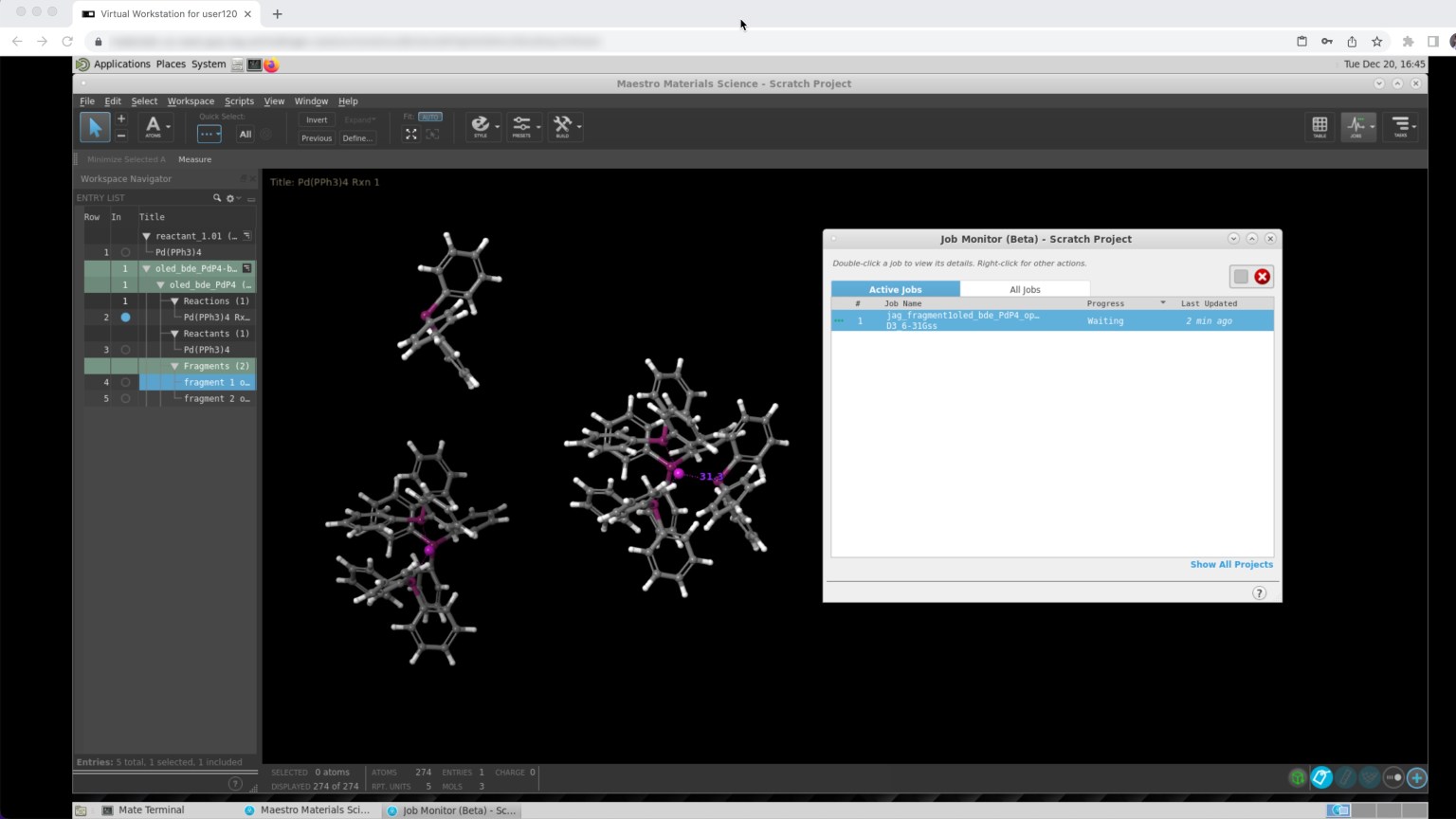
Access cloud-based computing resources to perform calculations yourself
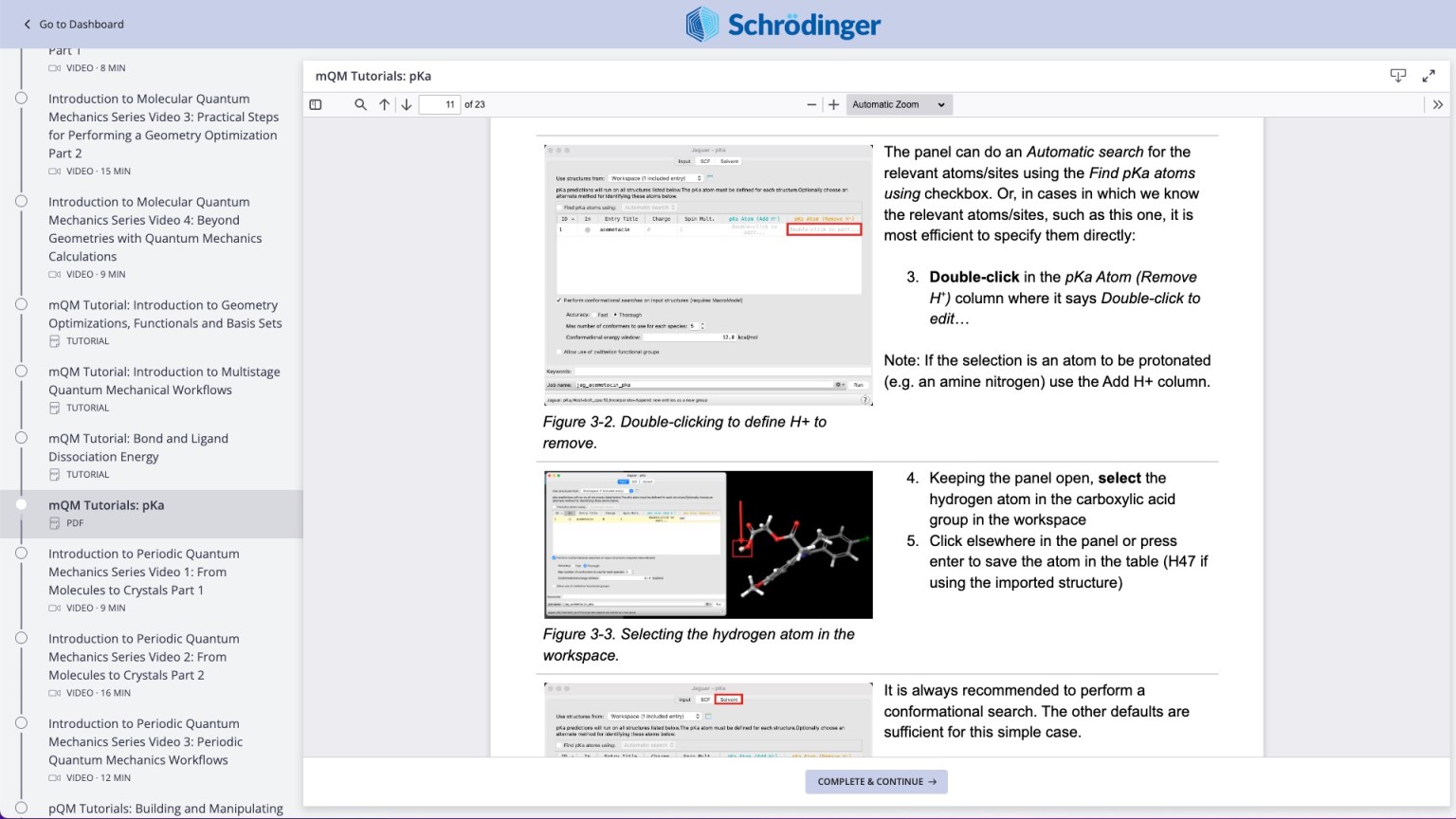
Hands-on step-by-step tutorials (e.g. Pharmaceutical Formulations course, pKa prediction)
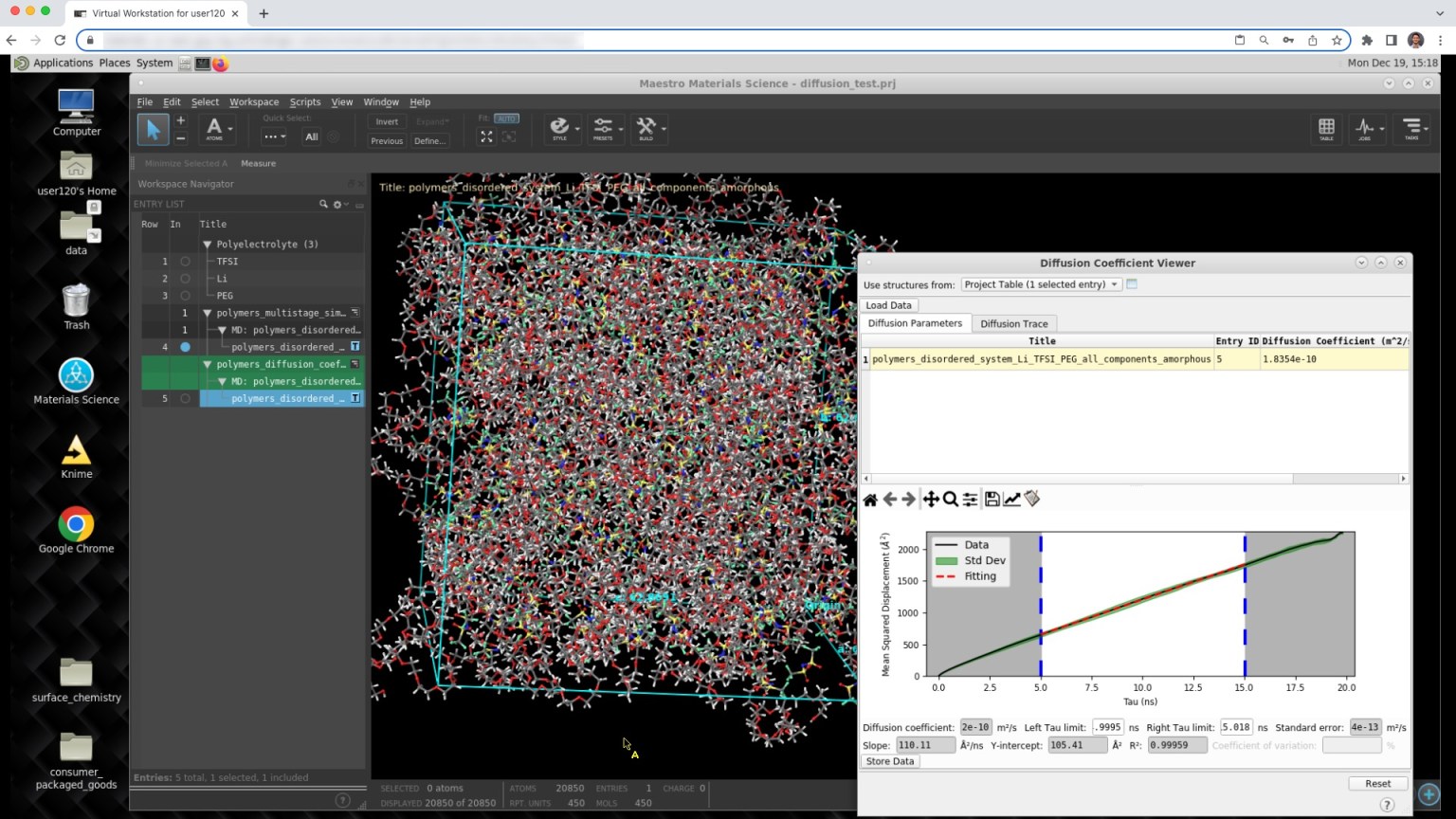
Hands-on modeling in the web-based graphical user interface (e.g. Polymeric Materials course, Diffusion tutorial)
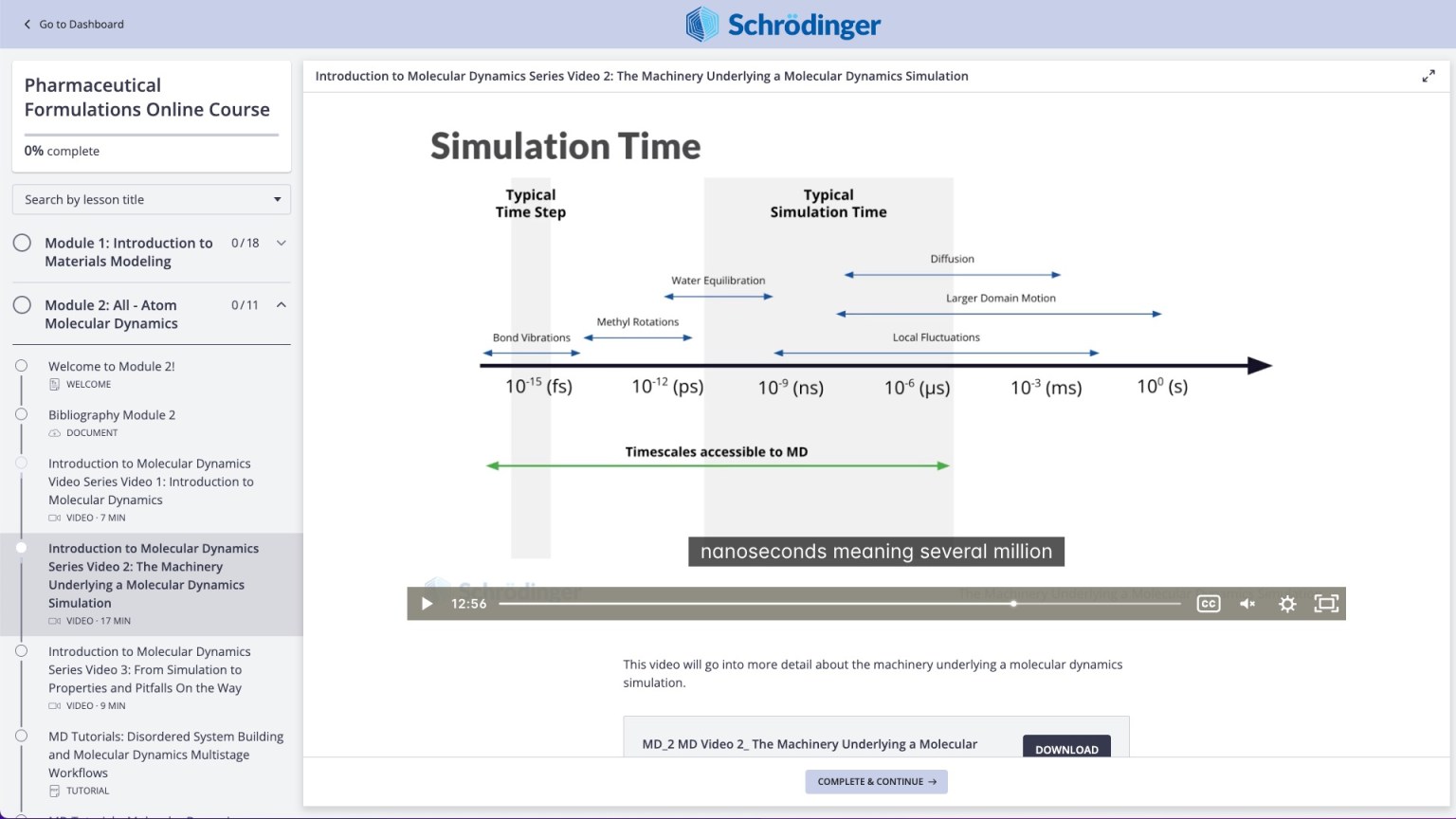
Videos on practical theory break down complex scientific concepts (e.g. Molecular Dynamics)
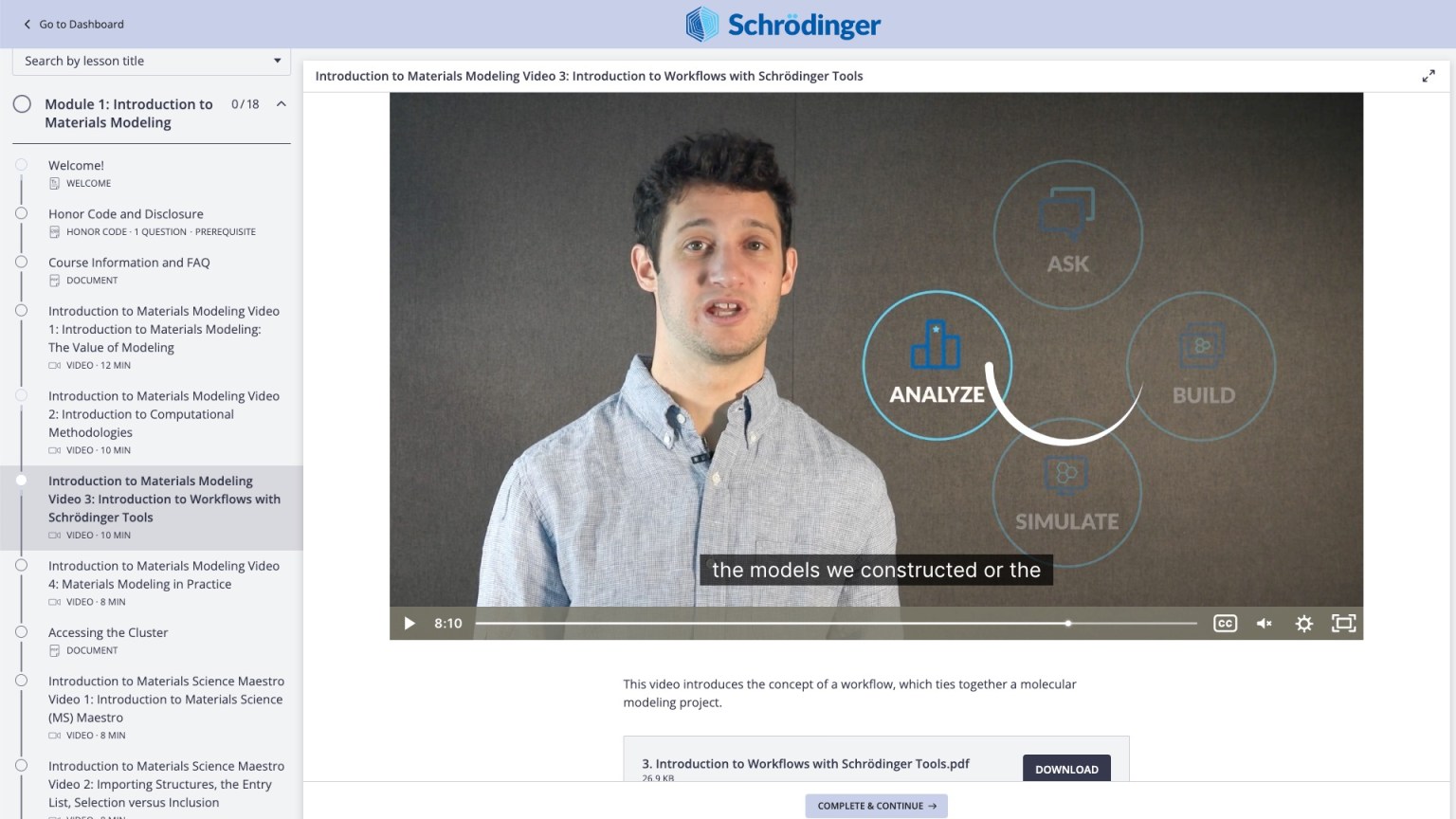
On-demand video lessons on materials modeling
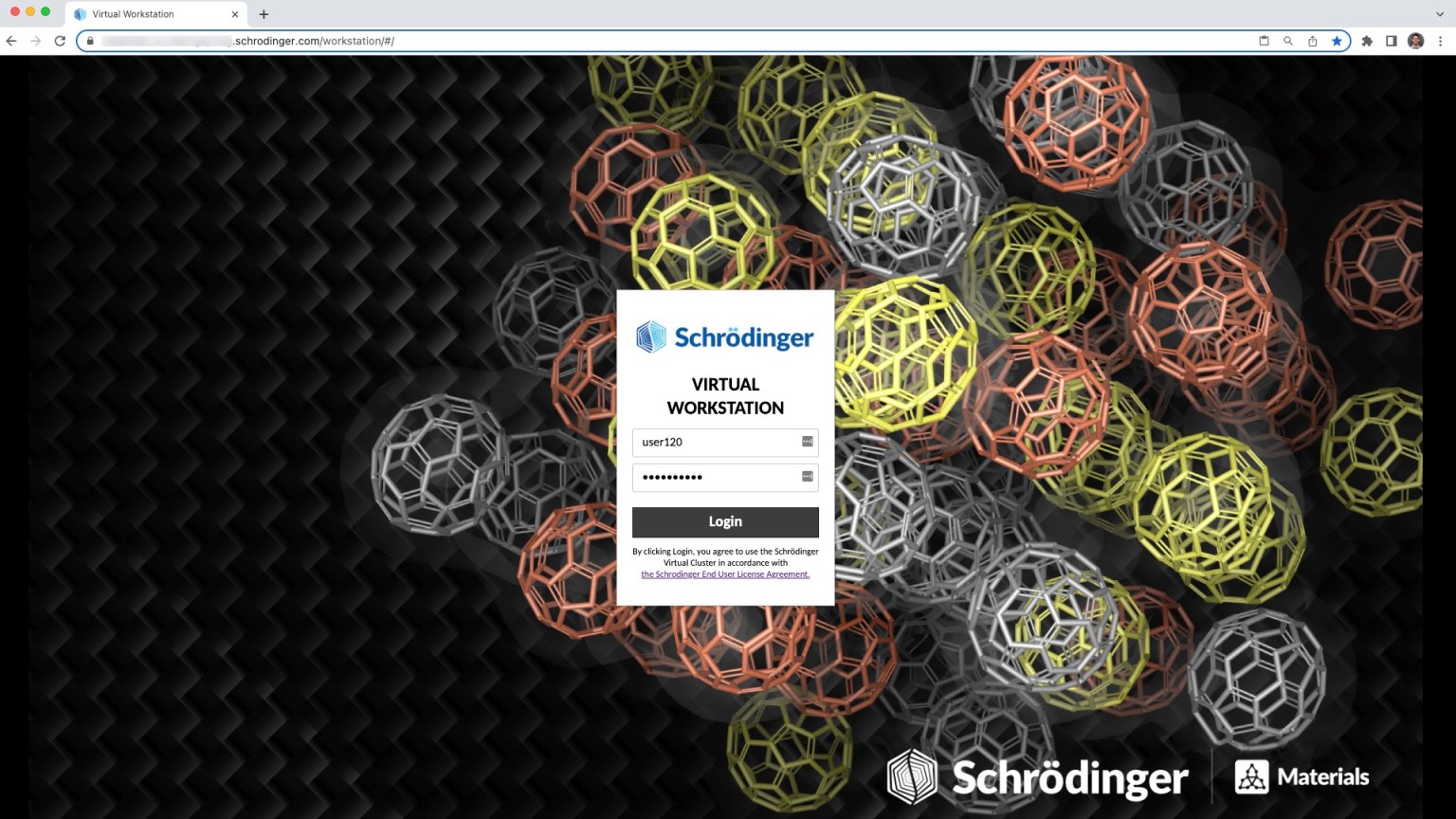
Access cloud-based computing resources to perform calculations yourself
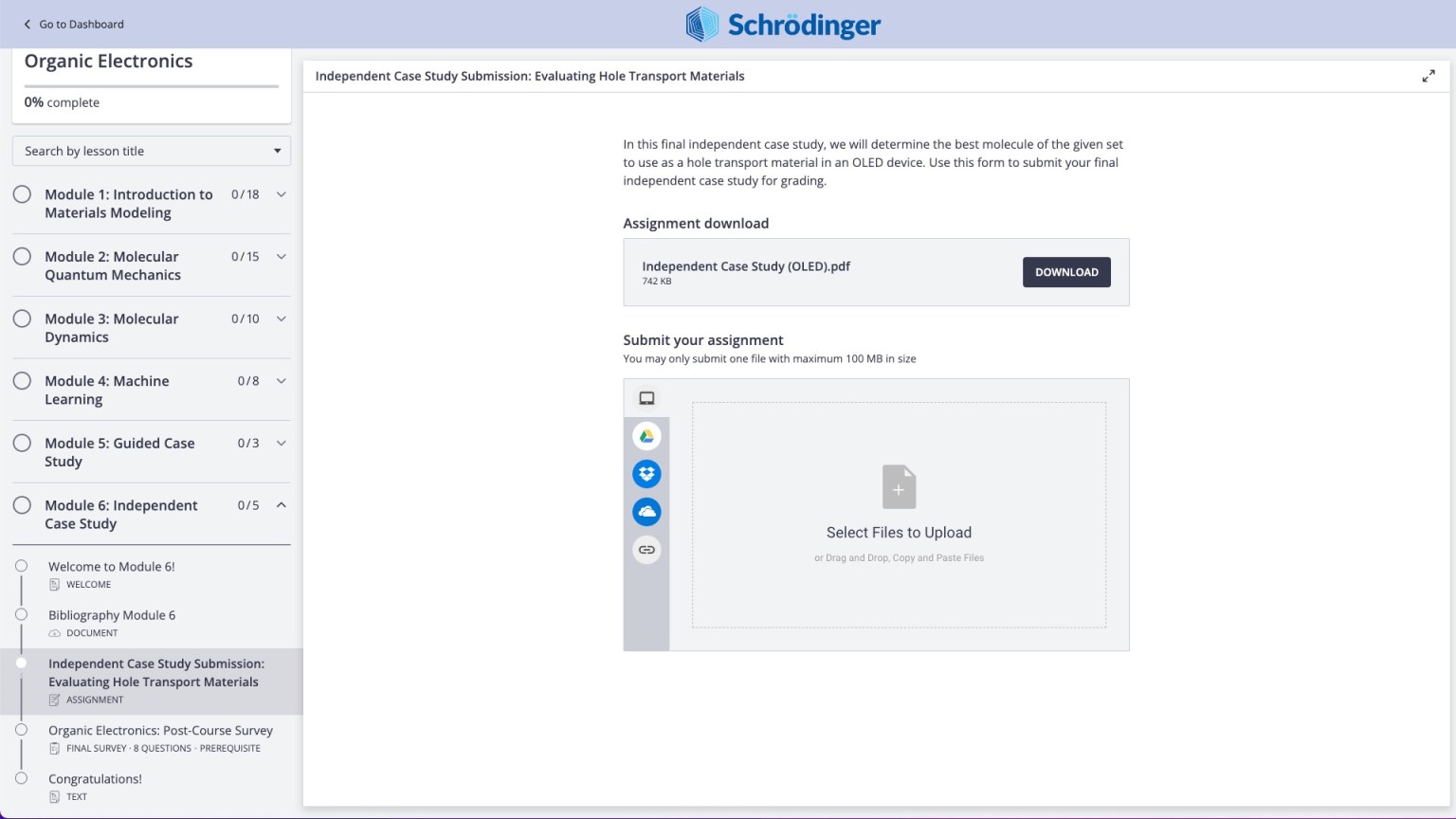
Perform case studies with expert feedback (e.g. Organic Electronic Course, Independent Case Study)
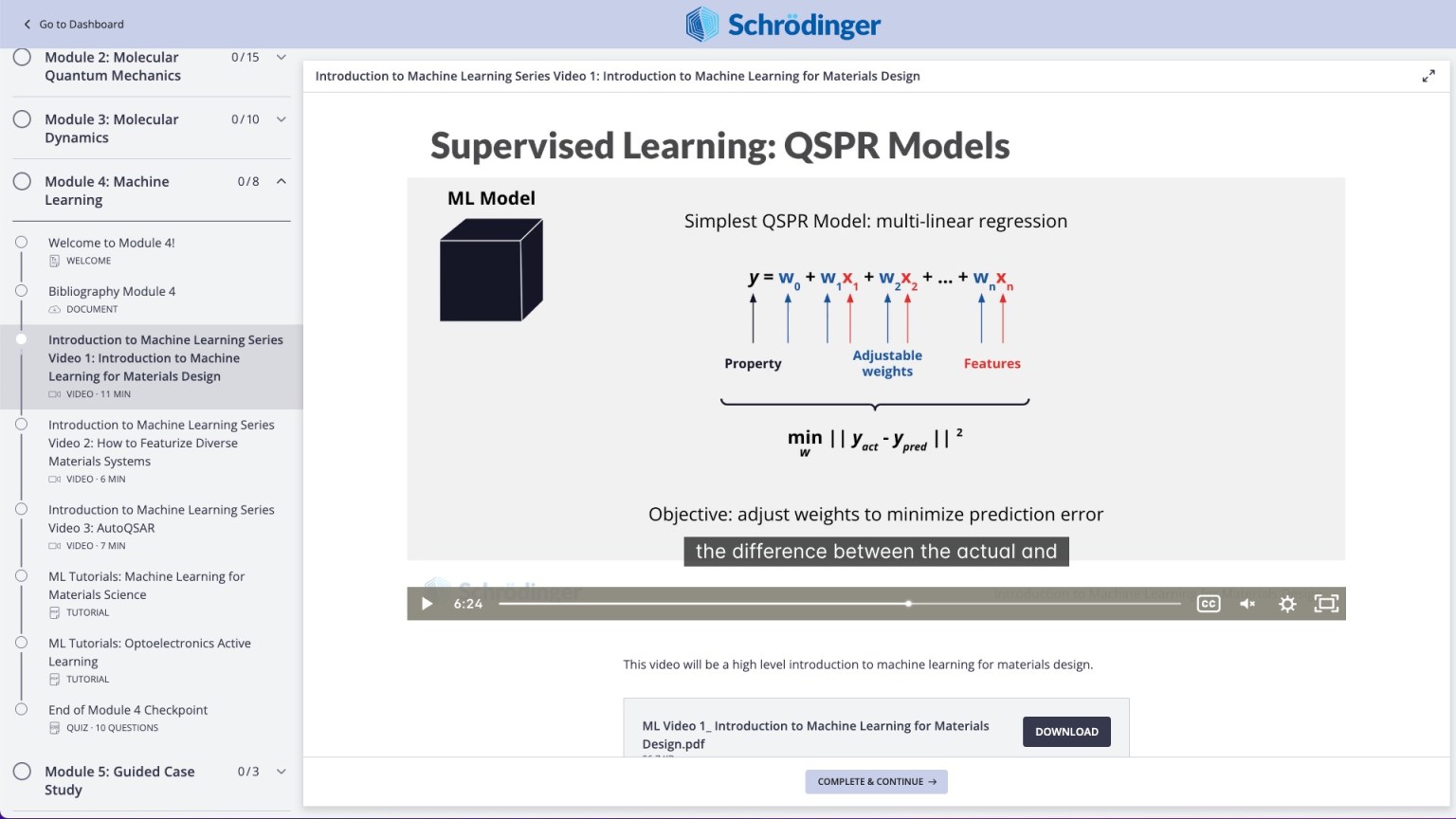
Video on practical theory break down complex scientific concepts (e.g. Machine Learning for Chemistry)
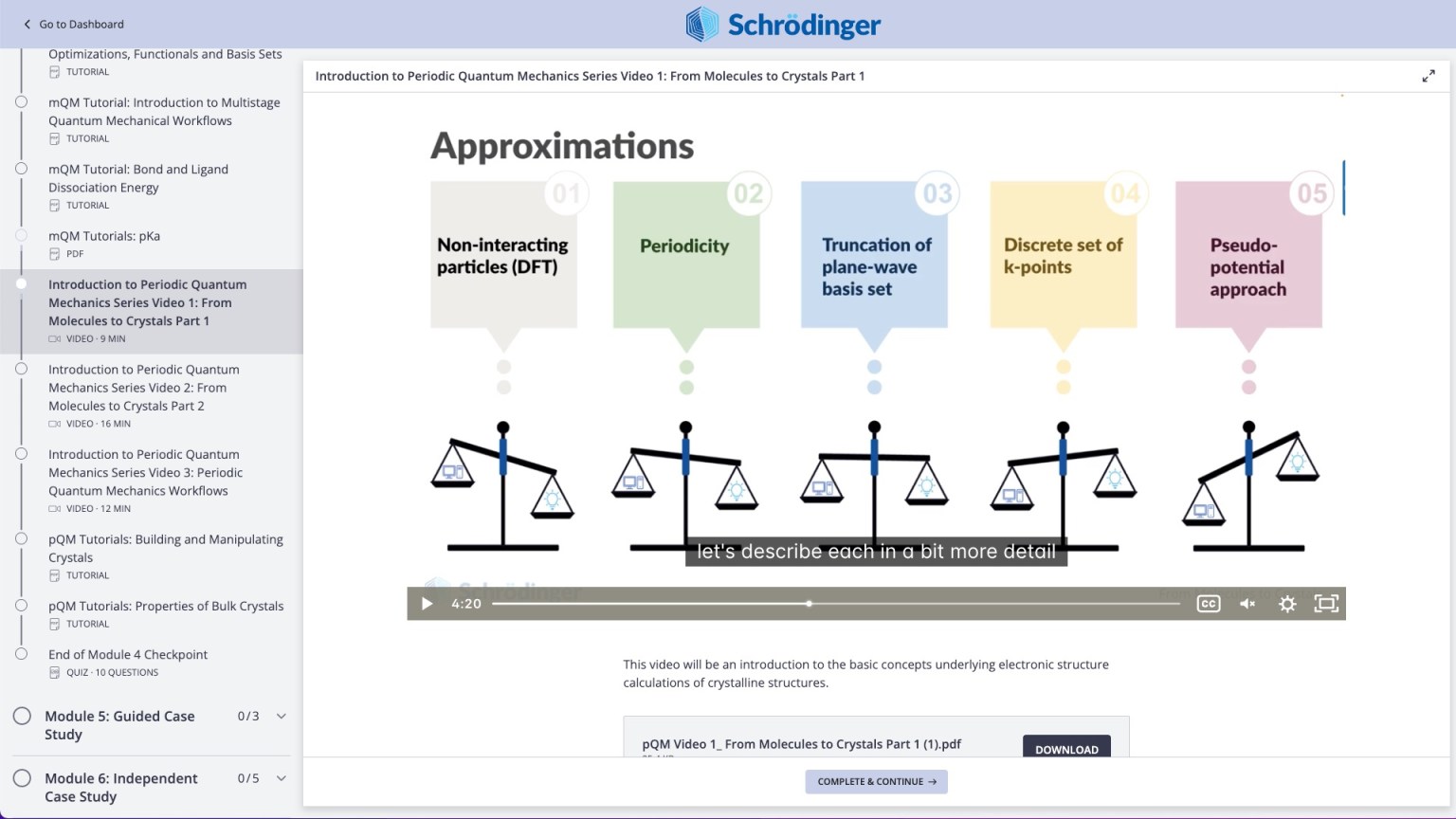
Videos on practical theory break down complex scientific concepts (e.g. Periodic Quantum Mechanics)
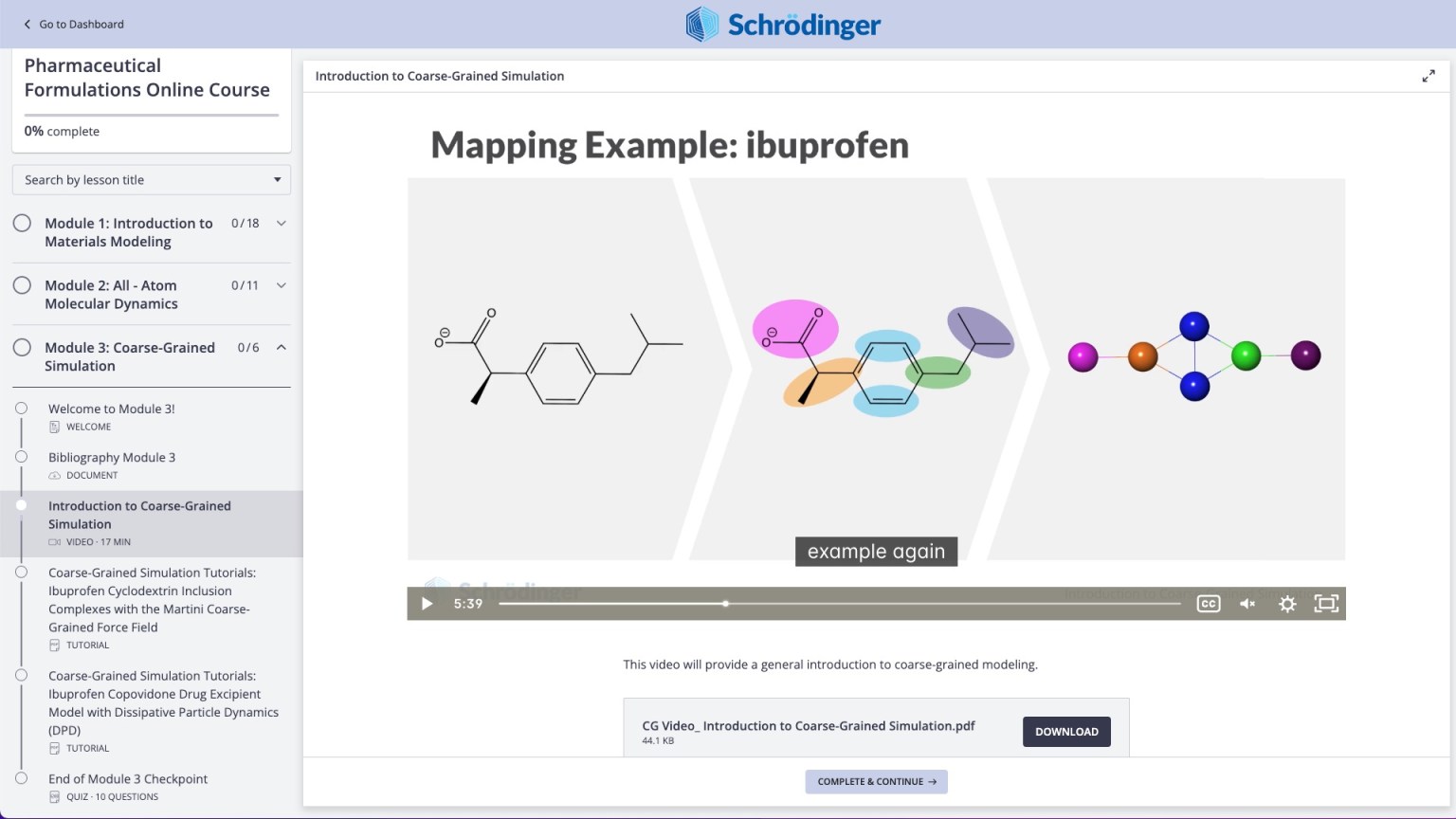
Videos on practical theory break down complex scientific concepts (e.g. Coarse-Graining)

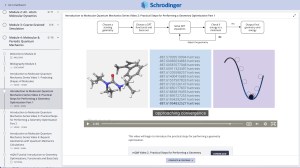
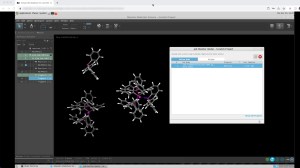
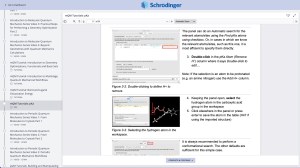
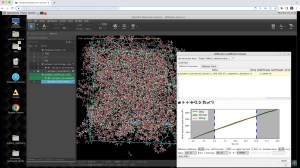
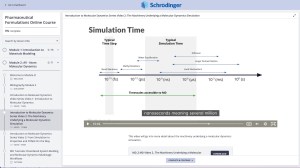
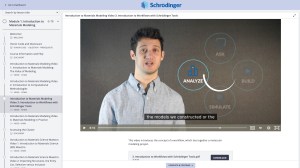
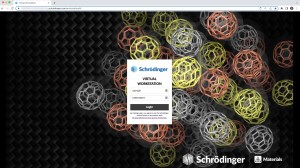
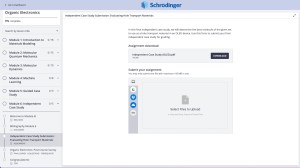
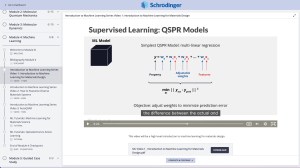
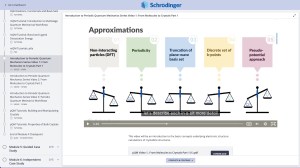
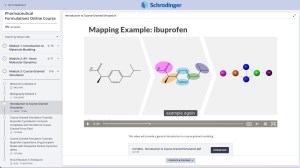
We proudly support the next generation of scientists and are committed to providing opportunities to those with limited resources. Learn about your funding options for our online certification courses as a student, post-doc, or industry scientist and enroll today!

When you complete a course with us in molecular modeling and are ready to share what you learned with your colleagues and employers, you can share your certificate and badge on your LinkedIn profile.
Pricing varies by each course and by the participant type. For students wishing to take these courses, we offer a student price of $150 for introductory courses, $305 for the Materials Science bundle, and $870 for advanced courses. For commercial participants, the course price is $575 for introductory courses and $1435 for advanced courses and bundles.
The courses run on sessions, which range from 3-6 week periods during which the course and access to software are available to participants. You can find the course session and start dates on each course page.
Once the course session begins, all lectures are asynchronous and you can view the self-paced videos, tutorials, and assignments at your convenience.
Interested participants can pay for the course by completing their registration and using the credit card portal for an instant sign up. Please note that a credit card is required as we do not accept debit cards. Additionally, we can provide a purchase order upon request, please email online-learning@schrodinger.com if you are interested in this option. If you have any questions regarding how to pay for the course, please visit our funding options page.
Schrödinger is committed to supporting students with limited resources. Schrödinger’s mission is to improve human health and quality of life by transforming the way therapeutics and materials are discovered. Schrödinger proudly supports the next generation of scientists. We have created a scholarship program that is open to full-time students or post-docs to students who can demonstrate financial need, and have a statement of support from the academic advisor. Please complete the application form if you qualify for our scholarship program!
While access to the software will end when the course closes, some of the material within the course (slides, papers, and tutorials) are available for download so that you can refer back to it after the course. Other materials, such as videos, quizzes, and access to the software, will only be available for the duration of the course.
For the duration of the course, you will have access to a web-based version of Maestro, Bioluminate, Materials Science Maestro and/or LiveDesign (depending on the course). You do not have to separately purchase access to any software. While access to the software will end when the course closes, some of the material within the course (slides, papers, and tutorials) are available for download so that you can refer back to it after the course. Other materials, such as videos, quizzes, and access to the software, will only be available for the duration of the course. Please note that Schrödinger software is only to be used for course-related purposes.
What our alumni say